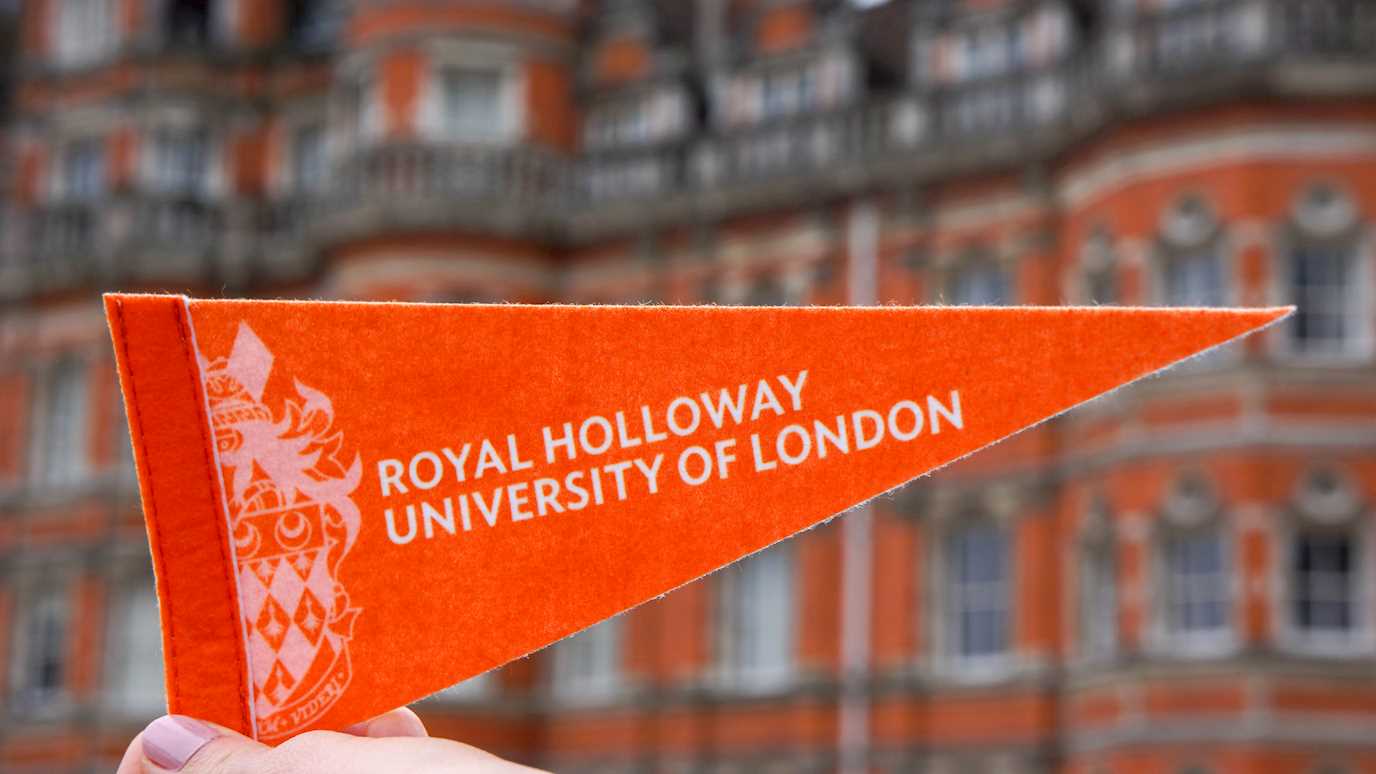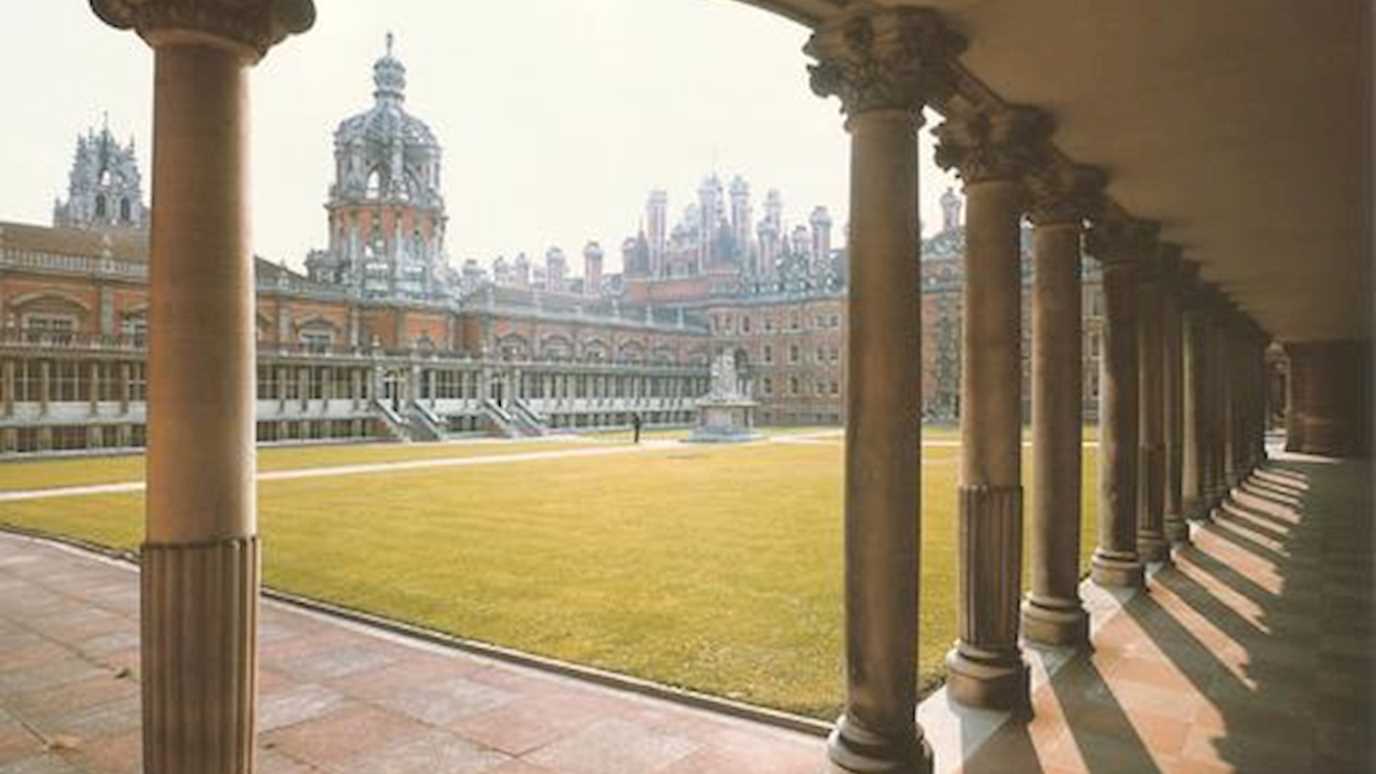News and updates from our research team
News
New Research Article Published in Political Psychology
May 2024

A new research article published in the Political Psychology examines the association between perceived injustice and political trust: Testing a dual-pathway model through anger and patriotism across four countries.
The article was co-authored by Institute Director Dr Chanki Moon and Prof Giovanni A.Travaglino.
The article is available here
Award of a BA/Leverhulme Small Research Grant SRG 2023-24
March 2024

Dr Chanki Moon and Prof. Giovanni Travaglino were awarded a BA/Leverhulme Small Research Grant for the project "Unpacking the Link between Ideology and the Endorsement of Political Violence: When and How Justifying the Status Quo Can Fuel Radicalization".
The project examines the relationship between system justification and support for political violence against the government. It extends recent research published in the journal Political Psychology.
New Research Article Published in the Journal of Cross Cultural Psychology
February 2024

A new research article published in the Journal of Cross-Cultural Psychology examines the relationship between honour-related reputation values and social identity in a longitudinal study of adolescents in Southern Italy
The article was co-authored by Institute Director Prof Travaglino, Maria-Therese Friehs, Patrick Kotzur and Dominic Abrams.
The article is available here.
Keynote address at the 4th International Scientific Conference at the Catholic University of Croatia
December 2023
Prof Travaglino delivered a Keynote address at the conference "Changing Life Circumstances – Opportunity for Individual and Community Growth" held at the psychology department of the Catholic University of Croatia.
The talk was titled "How Organized Criminal Groups Impact Societies: Secret Power, Illegal Governance and Civic Relationships".

ESRC Impact Accelerator Grant
November 2023
Prof. Giovanni Travaglino & Dr Chanki Moon were awarded an ESRC Impact Accelerator Grant to run a cross-sector knowledge exchange forum and build a network to understand how organised criminal groups influence communities and devise effective strategies against their impact on people.
Paolo Palazzo writes about judicial corruption in Italy
October 2023
Mr Paolo Palazzo, Deputy Chief of the Department of Judicial Police at the Public Prosecutor's Office in Turin (Italy), writes about a judicial corruption scandal in Italy, reflecting on the broader implications of immoral behavior, the failure of systemic controls, and the necessity of individual ethical conduct to ensure justice and protect the vulnerable.
The article can be read here.
New Research Article Published in Group Processes & Intergroup Relations
September 2023


A new research article published in Group Processes & Intergroup Relations examines the conditions under which personal secrets are disclosed within groups.
The article was co-authored by Institute Director Prof Travaglino, Prof Levine, Dr Cepulic and Mr Li .
A summary of the article is available here.
New Article Published in The Conversation
July 2023
Professor Giovanni Travaglino has published a new article in The Conversation.
The article is titled "When mafia threatens democracy: research shows ordinary people are less honest in countries hit by organised crime". It discusses recent research findings published in the Social Psychological and Personality Science journal.
You can read the article here.

New Research Article Published in Social Psychological and Personality Science
June 2023


A new research article published in Social Psychology and Personality Science examines the complex relationship between the influence of organized criminal groups, individuals' political trust and civic honesty across 83 countries.
The article was co-authored by Institute Director Prof Travaglino and External Fellows Dr Burgmer and Prof Mirisola.
A summary of the article is available here.
PCS Institute Welcomes Prof Hoon-Seok Choi as External Research Fellow
May 20th 2023
The Institute for the Study of Power, Crime, and Society (PCS Institute) is delighted to announce the appointment of Prof Hoon-Seok Choi as an External Research Fellow. This prestigious collaboration, facilitated by Dr. Chanki Moon, Deputy Director of the PCS Institute, aims to deepen the institute's connection with SungKyunKwan University, a leading academic institution in South Korea.
Prof Choi brings a wealth of experience in social and organizational psychology to the PCS Institute, with research interests encompassing power dynamics, group behavior, and conflict resolution. His addition to the team strengthens the institute's ability to address pressing social issues on a global scale.
The partnership between Prof Choi and the PCS Institute highlights the commitment of both parties to fostering an international network of scholars dedicated to understanding and addressing complex societal challenges. This collaboration will enhance research capabilities, promote knowledge exchange, and encourage further cooperation between the PCS Institute and SungKyunKwan University.
Please join us in welcoming Prof Hoon-Seok Choi as he begins his tenure as an External Research Fellow at the Institute for the Study of Power, Crime, and Society.
Competing Social Orders: The Political Influence of Organized Criminal Groups on Communities
April 20th 2023
Professor Giovanni Travaglino (Professor of Social Psychology and Criminology) has been invited to deliver a seminar at the Psychology Master program of the Centre for Social Psychology, University of Basel. The talk’s title is “Competing social orders: The political influence of organized criminal groups on communities” and will illustrate recent research conducted at the Institute for the Study of Power, Crime, and Society. The talk will be held on Thursday, 20th April at 12.00.
Research Collaboration: Professor Travaglino visits the University of Palermo
April 19th 2023


Professor Giovanni Travaglino has been invited to visit the University of Palermo in Italy. The visit will take place from April 19th to April 30th.
During the visit, Professor Travaglino will deliver talks to students and faculty on the Social Psychology of Criminal Governance and Illegal Power. These talks will be an opportunity for students and faculty to learn from one of the leading experts in the field and engage in meaningful discussions on the latest research.
In addition to delivering talks, Professor Travaglino will use the visit to strengthen research links between the two universities. The visit will provide an opportunity to continue with the planning for the data collection in Italy, as part of the ongoing research project, Secret Power.
Understanding the 'Secret Power' of Organised Crime
March 7th 2023
The Institute for the Study of Power, Crime, and Society (PCS Institute) at Royal Holloway, University of London, is collaborating with the Keele Policing Academic Collaboration (KPAC) to organise a workshop on the issue of Organized Criminal Groups. Under the Direction of Professor Giovanni Travaglino, the PCS Institute was recently awarded a prestigious £1.5m European Research Council project (funded by UKRI). The project titled “Secret Power” explores the social psychological dynamics through which OCGs embed themselves within societies to the point where some communities feel it is legitimate to shield them from routine and specialist investigative techniques deployed by police. KPAC’s Director Professor Clifford Stott sits on the Advisory Board of the Secret Power project and has consequently developed the workshop with KPAC’s Professor of Practice Marcus Beale. In addition to Professor Travaglino, the workshop will hear presentations from John Denley, Head of Investigations at the National Crime Agency and Paolo Palazzo, the Deputy Chief of the Department of Judicial Police at the Public Persecutor’s Office in Turin, Italy. As well as strengthening Royal Holloway’s collaboration with Keele, the workshop will be attended by representatives from several police forces across England and will be an opportunity for police force representatives to meet the key academics leading the research.
The workshop will be held on Tuesday, 7th March 2023.
Guest Speaker: The Institute welcomes Dr Marco Ciziceno
February 16th 2023
Dr Marco Ciziceno will be delivering a talk on his paper entitled:
Life Satisfaction and Tax Morale: The Role of Trust in Government and Cultural Orientation.
Abstract: Taxes are essential for a government to function correctly, because they fund public services and promote longterm growth in a country. Tax morale is a positive attitude toward taxation shaped by extrinsic and intrinsic motivations, including numerous psychological factors. However, these factors are far from completely clear and a better understanding of what drives tax morale can greatly help governments in the design of tax policies and their administration. In this paper we test the novel hypothesis that life satisfaction is one of the psychological aspects affecting tax morale. Using longitudinal data from the World Value Survey, we show that people more satisfied with their own life show higher tax morale. We also provide evidence on the roles played by confidence in government and people’s cultural orientation in shaping the relationship between life satisfaction and tax morale. Our findings support the idea that implementing alternative policies that, directly or indirectly, increase tax morale could be politically relevant for helping governments mobilize adequate resources from taxation, given that tax evasion prosecution is far from perfect.
The meeting will take place on 16th February 2023 @ 11:00. Email pcs.institute@rhul.ac.uk for a teams link.
Talk at the Centre for Research on Self & Identity, University of Southampton
December 9th 2022
Professor Giovanni Travaglino (Professor of Social Psychology and Criminology) has been invited to deliver a talk at the Centre for Research on Self & Identity, University of Southampton.
The talk is titled “Politics Beyond the State: The Social Psychological Underpinnings of Criminal Governance”. Prof. Travaglino will discuss new findings from the “Secret Power” project.



The talk will be held in Southampton on December 9th
Meeting of the Secret Power Project in Japan
November 18th 2022
The first meeting with the Japanese colleagues working on the Secret Power Project was held at the University of Okayama. The meeting included Professor Giovanni Travaglino (RHUL), Dr Miki Ozeki (University of Okayama), Dr Kengo Nawata (Fukuoka University) and Dr Hiro Imada (Kochi University).
Japan is a critical setting to examine the socio-psychological dynamics underpinning the acceptance of criminal governance. Data collection in Japan will enable the project to assess cultural differences and similarities in how individuals respond to and appraise illegal forms of political power. It will also enable the researchers to test the theories of Intracultural Appropriation and (il)legal socialization in a context characterised by a strong state presence and different criminal groups (the Yakuza). Data collection in the Japanese context also involves a number of crucial challenges, ranging from the translation of the materials and the piloting of measures to the recruitment of research participants.
The meeting provided an opportunity to discuss these challenges, establish a common language and framework and highlight the opportunities embedded in the research.
The beautiful campus of the University of Okayama


The Meeting



... and some great Japanese food

Talk at the Research Institute for the Dynamics of Civilisation, Okayama University
November 18th 2022



Professor Giovanni Travaglino will give a talk at the Research Institute for the Dynamics of Civilization (RIDC), Okayama University, Japan. The talk is titled "Alternative Systems: How Criminal Actors Influence Society" and will discuss preliminary findings and future directions of the ERC project Secret Power.
Prof. Travaglino will present evidence from 83 countries demonstrating how cross-national differences in the influence of criminal groups are linked to individuals’ moral orientation towards public goods. He will discuss the complex cognitive representations of organized crime in the US and Italy. Finally, he will present findings from Southern Italy showing how adolescents' feelings of support towards criminal groups are organized vis-à-vis their ideologies and identities.
Research Seminar: Power and Prosociality: Reputational Concern drives Prosociality among the Powerless
December 2nd 2022
Research Seminar with Dr Hiro Imada (Kochi University of Technology).


Title: Power and Prosociality: Reputational Concern drives Prosociality among the Powerless
Abstract: Asymmetries in power permeate social life, relationships, and groups. Scholars have long investigated the role of power in shaping human prosociality but have collated mixed evidence as to when and how power affects cooperation. Synthesizing the evolutionary psychological literature on reputation-based cooperation with the social psychological literature on power, I contend that reputational concerns may play a crucial role in shaping the effect of power on prosociality. Consistent with this perspective, results from correlational and experimental studies (14 studies, total N = 3,121), including a mini meta-analysis, demonstrate that the powerless experience increased reputational concerns and, subsequently, display more cooperation when interacting with high-power others. Conversely, power and reputational concerns did not influence prosociality among the powerful.
Moreover, results indicate that individuals are more cooperative towards higher power in-group members than lower power in-group members. This power-based within-group discrimination was explained by the differing levels of reputational concerns felt by individuals. While previous studies on power predominantly focused on the powerful, this reputational account of power offers a new perspective that may help us better understand the psychology of the powerless.
The Speaker: Dr Hiro Imada (Research Fellow, Kochi University of Technology) conducts research on the role of reputation in social behaviour. More specifically, his research interests include reputation-based cooperation, gossip, power, and intergroup behaviour (e.g., intergroup cooperation and conflict). In his PhD thesis, he investigated how power asymmetries shape within-group and intergroup cooperation via reputational concerns. His work is grounded in social and evolutionary psychological perspectives. He employs interdisciplinary approaches involving economic games and surveys.


























